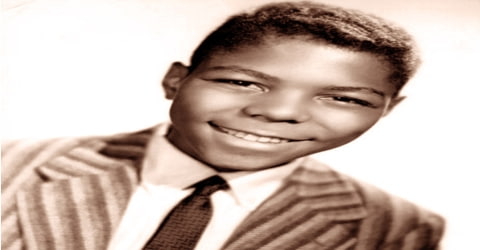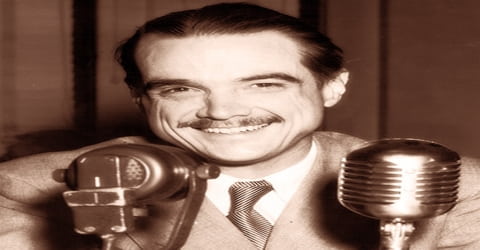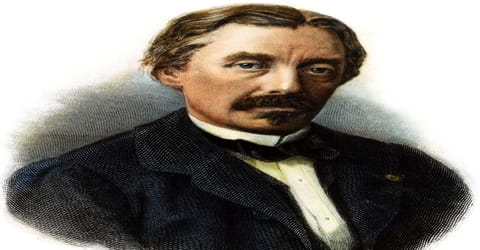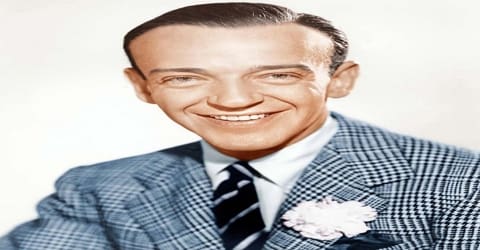Biography of Frankie Lymon
Frankie Lymon – American rock and roll/rhythm and blues singer and songwriter.
Name: Franklin Joseph Lymon
Date of Birth: September 30, 1942
Place of Birth: Harlem, New York City, New York, United States
Date of Death: February 27, 1968 (aged 25)
Place of Death: Harlem, New York City, New York, United States
Occupation: Singer, Songwriter
Father: Howard Lymon
Mother: Jeanette Lymon
Spouse/Ex: Zola Taylor (m. 1965–1968), Emira Eagle (m. 1967–1968)
Children: Francine Lymon
Early Life
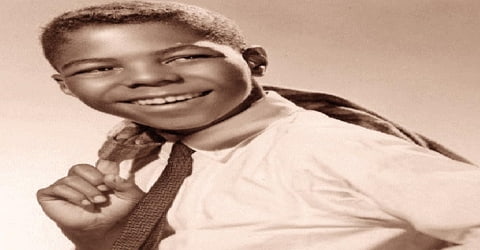
American rock and roll singer and songwriter, Frankie Lymon was born in Harlem, New York, U.S. on September 30, 1942, to Jeanette and Howard Lymon. He was best known as the boy soprano lead singer of the New York City-based early rock and roll group The Teenagers. The group was composed of five boys, all in their early to mid-teens. The members were Frankie Lymon (b. Sept. 30, 1942, New York, N.Y., U.S. – d. Feb. 28, 1968, New York), Herman Santiago (b. Feb. 18, 1941, New York), Jimmy Merchant (b. Feb. 10, 1940, New York), Joe Negroni (b. Sept. 9, 1940, New York – d. Sept. 5, 1978, New York), and Sherman Garnes (b. June 8, 1940, New York – d. Feb. 26, 1977, New York).
With the group, Lymon released several hit singles, including ‘Why Do Fools Fall in Love,’ ‘I Want You to Be My Girl,’ ‘I Promise to Remember,’ ‘The ABC’s of Love’, ‘I’m Not a Juvenile Delinquent’, ‘Out in the Cold Again’ and ‘Goody Goody.’ As a solo performer, the roll and roll singer contributed to several albums. Some of his hit albums were: ‘Frankie Lymon and the Teenagers’, ‘Frankie Lymon at the London Palladium’, ‘Rock & Roll with Frankie Lymon’ and ‘Complete Recordings (Bear Family).’ Lymon, who started using drugs after his career went into decline, was found dead from a heroin overdose at the age of 25. Following his untimely death, he was buried at the Saint Raymond’s Cemetery in New York City. Talking of his personal life, the American artiste was a polygamist and remained married to three beautiful ladies up to his death. His musical career was dramatized in the 1998 flick ‘Why Do Fools Fall in Love’.
Childhood, Family and Educational Life
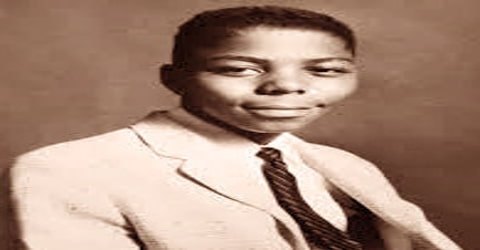
Frankie Lymon, by name of Franklin Joseph Lymon, was born on September 30, 1942, in Harlem, New York City, New York, the U.S. His mother Jeanette Lymon was a maid and his father Howard Lymon was a truck driver. Both of them were also singers in the gospel group, Harlemaires.
At age ten, Lymon started working as a grocery boy to supplement his family income meet. At age 12, he became familiar with the lead singer Herman Santiago of the local doo-wop group, Coupe De Villes at a school talent show. Eventually, he also became a part of the group which later was renamed to The Ermines and The Premiers.
Personal Life
Frankie Lymon began a romantic relationship with Elizabeth Waters and went on to marry her in 1964.The couple had a baby girl who died just two days after her birth at Lenox Hill Hospital. Very few people know that Lymon’s marriage to Waters was illegal as she was still married to her first husband.
Lymon moved to Los Angeles in the mid-1960s, where he began a romantic relationship with Zola Taylor, a member of the Platters. Taylor claimed to have married Lymon in Mexico in 1965. However, it was said that their marriage was just a publicity stunt and there was no legal documentation of their marriage. The couple parted ways in 1968 because of Lymon’s drug habits.
Meanwhile, in 1967, Lymon fell in love with another woman, Emira Eagle. The two got married in June 1967. Lymon was a polygamist and he remained married to Waters, Taylor, and Eagle up to his death.
Addicted to heroin since the age of 15, Lymon fell further into his habit, and his performing career went into decline. According to Lymon in an interview with Ebony magazine in 1967, he was first introduced to heroin when he was 15 by a woman twice his age. On June 21, 1966, Lymon was arrested on a heroin charge and was drafted into the United States Army in the lieu of a jail sentence. He reported to Fort Gordon, Georgia, near Augusta, Georgia, for training.
Career and Works

(Frankie Lymon and The Teenagers)
The prepubescent soprano of 13-year-old lead singer Lymon, sounding innocent and girlish, represented one of the most appealing sounds in early rock and roll, and many later pop groups would feature a preteen male lead, most notably the Jackson 5. The Teenagers’ first successful record, “Why Do Fools Fall In Love” (1956), was followed by five more singles that appeared on the national survey lists of the most popular records in the United States. The Teenagers also appeared in two popular rock-and-roll movies starring disc jockey Alan Freed, Rock, Rock, Rock (1956) and Mister Rock and Roll (1957).
The group, which was now renamed to The Teenagers, then gave an audition with American record producer George Goldner. On the day of the audition, Santiago, the original lead singer didn’t arrive on time and Lymon stepped up instead and sang on his behalf.
Goldner signed the group to Gee Records, and “Why Do Fools Fall in Love” became its first single in January 1956. The single peaked at No. 6 on the Billboard pop singles chart and topped the Billboard R&B singles chart for five weeks. Six other top blues 10 singles followed over the next year or so: “I Want You to Be My Girl”, “I Promise to Remember”, “Who Can Explain?”, “Out in the Cold Again”, “The ABC’s of Love”, “I’m Not a Juvenile Delinquent”, and “Baby Baby” was also popular Teenagers releases. “I Want You To Be My Girl” gave the band its second pop hit, reaching No. 13 on the national Billboard Hot 100 chart. “Goody Goody” (written by Matty Malneck and Johnny Mercer and originally performed by Benny Goodman) was a No. 20 pop hit but did not appear on the R&B chart. The Teenagers placed two other singles in the lower half of the pop chart. With the release of “I Want You To Be My Girl”, the group’s second single, The Teenagers became Frankie Lymon & the Teenagers. An album, “The Teenagers Featuring Frankie Lymon”, was released in December 1956.
Frankie Lymon then began performing as a solo artist, releasing his singles with Roulette Record. His singles titled ‘My Girl’ and ‘Little Girl’ came out in 1957. Soon after these singles, the rock and roll vocalist released his solo album ‘Rock & Roll with Frankie Lymon’.
His wise-beyond-his-years vocal and performing abilities not only made the Teenagers a group several notches above the competition but made Lymon the first black teenage pop star. Though only together for a brief 18-month period, Lymon & the Teenagers exerted enormous influence, spawning several “kid” vocal groups and providing initial inspiration to Berry Gordy to model his entire Motown production approach around Lymon’s original vocal style. Inexplicably, the group split into two factions at the height of their success, and neither had a hit again.
The group’s last single, “Goody Goody” backed with “Creation of Love,” initially retained the “Frankie Lymon & the Teenagers” credit, but they were actually solo recordings (with backing by session singers). Lymon had officially departed from the group by September 1957; an in-progress studio album called Frankie Lymon and the Teenagers at the London Palladium was instead issued as a Lymon solo release. On a July 19, 1957, episode of Alan Freed’s live ABC TV show The Big Beat, Lymon began dancing with a white teenage girl while he was performing. His actions caused a scandal, particularly among Southern TV station owners, and The Big Beat was subsequently canceled. There is no surviving footage because the episode was taped over, according to Judith Fisher Freed.
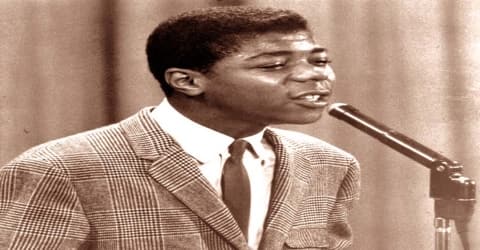
In 1959, Lymon came up with the single ‘Up Jumped a Rabbit.’ He released his singles ‘Little Bitty Pretty One’ and ‘Buzz Buzz Buzz’ in 1960. In the early 1960s, Lymon’s career started declining. The singer became addicted to heroin use and his voice changed to a deeper baritone. After this, he released a few more singles ‘Jailhouse Rock’, ‘Change Partners’ and ‘Young.’ Later on, Roulette ended their contract with him and Lymon entered a drug rehabilitation program.
In 1960, Howard Kenny Bobo sang lead on “Tonight’s the Night” with the Teenagers; later that year, Johnny Houston sang lead on two songs. The Teenagers, who had been moved by Morris Levy to End Records, were released from their contract in 1961. The Teenagers briefly reunited with Lymon in 1965, without success.
Over the next four years, the American vocalist struggled through short-lived deals with Columbia Records and 20th Century Fox Records. Under these records, he managed to release the singles ‘To Each His Own’ and ‘Somewhere.’ Lymon recorded several live performances (such as “Melinda” in 1959), but none rose on the charts. His final television performance was on Hollywood A Go-Go in 1965, where the then-22- or 23-year-old singer lip-synched to the recording of his 13-year-old self singing “Why Do Fools Fall in Love.”
Traveling to New York in 1968, Lymon was signed by manager Sam Bray to his Big Apple label, and the singer returned to recording. Roulette Records expressed interest in releasing Lymon’s records in conjunction with Big Apple and scheduled a recording session for February 28. A major promotion had been arranged with CHO Associates, owned by radio personalities Frankie Crocker, Herb Hamlett, and Eddie O’Jay. Lymon, staying at his grandmother’s house in Harlem where he had grown up, celebrated his good fortune by taking heroin; he had remained clean ever since entering the Army three years earlier.
Many lead performers, such as Michael Jackson, Diana Ross, Ronnie Spector, The Chantels, George Clinton, The Temptations, Len Barry, Smokey Robinson, and The Beach Boys have named Frankie Lymon as one of their idols.
Awards and Honor
Frankie Lymon and The Teenagers were inducted into the Rock and Roll Hall of Fame in 1993.
On February 1, 1994, Lymon was posthumously honored with a Star on the Hollywood Walk of Fame for Recording at 7083 Hollywood Boulevard, California.
As a member of Frankie Lymon and the Teenagers, the American vocalist was posthumously inducted into the Vocal Group Hall of Fame in 2000.
Death and Legacy
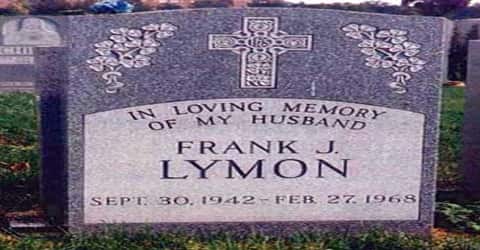
Frankie Lymon was found dead of a heroin overdose on February 27, 1968. He was just 25 at the time of his death. He was buried at Catholic Saint Raymond’s Cemetery in the Throggs Neck section of The Bronx, New York City, New York. “I’m Sorry” and “Seabreeze”, the two songs Lymon had recorded for Big Apple before his death, were released later in 1968.
Lymon’s music and story were re-introduced to modern audiences with Why Do Fools Fall in Love, a 1998 biographical film directed by Gregory Nava, also the director of the Selena biopic. Why Do Fools Fall in Love tells a comedic, fictionalized version of Lymon’s story from the points of view of his three wives as they battle in court for the rights to his estate. The film stars Larenz Tate as Frankie Lymon, Halle Berry as Zola Taylor, Vivica A. Fox as Elizabeth Waters and Lela Rochon as Elmira Eagle. Why Do Fools Fall in Love was not a commercial success and met with mixed reviews; the film grossed a total of $12,461,773 during its original theatrical run.
Frankie Lymon released the single ‘Goody Goody’ with the group Frankie Lymon and the Teenagers. This song, written by Johnny Mercer and Matty Malneck, was a No. 20 pop hit. His single ‘Why Do Fools Fall in Love’ was a super hit song. It peaked at No. 6 on the Billboard pop singles chart and topped Billboard R&B singles chart for about five weeks. His song titled ‘I Want You to Be My Girl’ was a hit as well and managed to impress the public. It reached No. 13 on the Billboard Hot 100 chart.
Lymon was mentioned in the 1992 Stephen King short story “You Know They Got a Hell of a Band”. Lymon is named as the one who cut off the waitress Sissy’s finger for trying to help the protagonists, Mary and Clark Willingham, escape from the town of Rock & Roll Heaven, Oregon, who is inhabited by musicians like Janis Joplin, Otis Redding, Roy Orbison, and other musicians who died young. The English Band Everything but the Girl on their 1991 Album “Worldwide” includes the song Boxing and Pop Music which references Lymon throughout the song.
Information Source:
